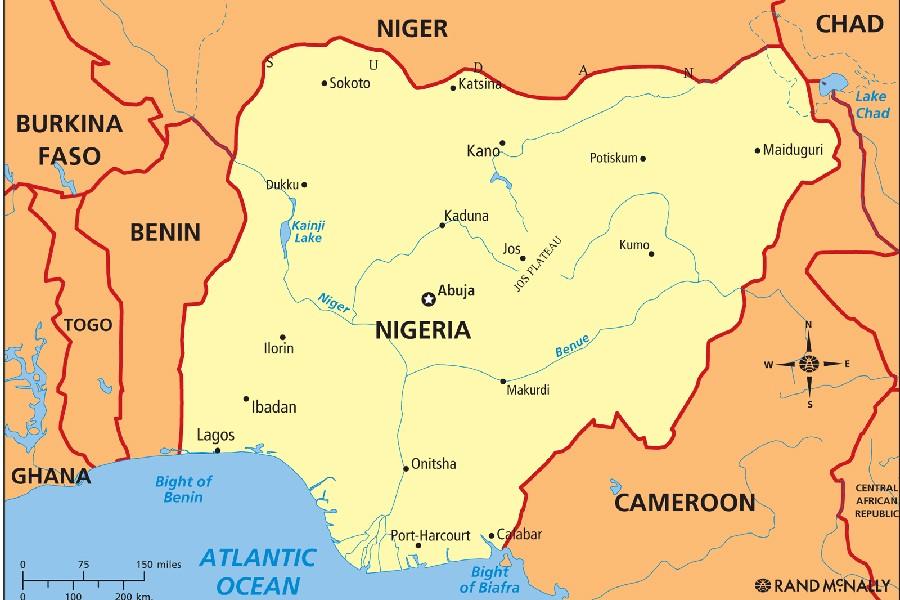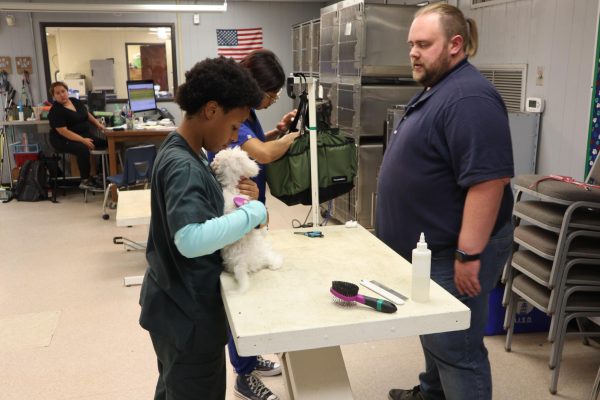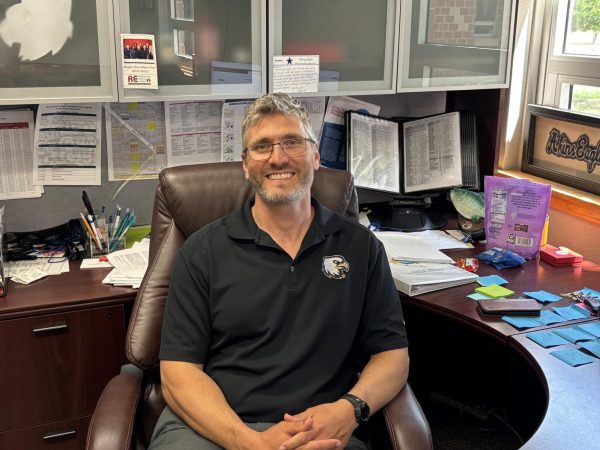Student connects to family in Nigeria
Map of Nigeria
February 25, 2015
About 4 months before December 2014, I was told I would be going to Nigeria again for the first time in 9 years. Of course, I was unnaturally excited to go back, again.
My parents thought we were long overdue to see all of their sisters and brothers and the many cousins my brothers and I had.
Both my parents were born and raised in Nigeria. My father moved here 30 years ago unlike my mother who move about 17 years ago.
We prepared in ways I thought was completely unnecessary. We bought food to last us for months as if Nigeria didn’t hold any food for us, clothes, bedsheets, cleaning supplies, and lastly crates full of bottled water. At the time I had no idea why we had to do all this and felt kind of insulted. All my life I’ve had to explain to people the Nigeria was just as civilized as America and that they didn’t need any help from any other country, and now I felt like my parents were doing it.
Prior to the trip we had to take Malaria medication. I also felt like Malaria would be the least of our problems in Nigeria, but I still didn’t hesitate to take them. With that we packed up our sum- mer clothes and took a 12 hour flight to Nigeria.
The second we landed, I had to change my clothes. African heat is really nothing to play with. We entered into the Lagos airport and everything hit me. The thick smell and atmosphere was overwhelmingly familiar. Everything was very disorganized. I’ve noticed that, though we have the technology, we don’t know how to use it properly. I noticed how impatient everyone is in the airport and the characteristic continued into the city.
During arrival I’ve learned a few rules for a Nigerian-American like myself. Don’t take pictures out in public with a big camera. Don’t talk too much if you don’t have an accent or don’t know how to speak “Pidgin English,” and don’t take you’re time ever.
We stayed at a few hotels before actually going to our house in the village. When I say village I mean neighborhood. But they call them villages because everyone in each village is related. When I was out in public, during hotel stays and such, I realized I couldn’t do anything really without a male figure around me. I went market shopping with my mother and my aunt a few times and they warned me not to come each time. Both times I learned that people, par- ticularly men, have no censor when it comes to their behavior.
I also learned to never go into Nigeria with an American mentality, because I was greatly disappointed with things I’ve never thought about before. Electricity, plumbing, is very low grade compared to American and British standards but that’s highly the fault of the corrupt Nigerian government.
Although quality of life may not have been exactly like my life in the United States, everything else was rich and beautiful. Nigerians are very family oriented and love very colorful clothing and accessories. When I visited my very extensive family everyone was very welcoming. They made me feel like family is really all I needed, which it is. The land, is very rich with trees that always grown something, whether fruits, vegetables or sometimes wine. I even saw a difference in culture between my cousins who lived in the city of Lagos compared to the ones who live in a small city of Owerri. The big city dwellers were more Americanized than the others.
Our extended relatives in Nigeria were great to us. They didn’t hesitate to teach me more about my culture. I felt like the cultural and environmental good outweighed the economic and political bad I experienced while I was there. Visiting made me long for another visit, only because I loved the closeness of a big family and wouldn’t replace that for anything else









